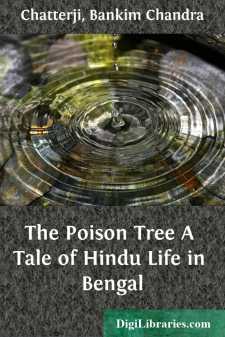Categories
- Antiques & Collectibles 13
- Architecture 36
- Art 48
- Bibles 22
- Biography & Autobiography 813
- Body, Mind & Spirit 142
- Business & Economics 28
- Children's Books 15
- Children's Fiction 12
- Computers 4
- Cooking 94
- Crafts & Hobbies 4
- Drama 346
- Education 46
- Family & Relationships 57
- Fiction 11828
- Games 19
- Gardening 17
- Health & Fitness 34
- History 1377
- House & Home 1
- Humor 147
- Juvenile Fiction 1873
- Juvenile Nonfiction 202
- Language Arts & Disciplines 88
- Law 16
- Literary Collections 686
- Literary Criticism 179
- Mathematics 13
- Medical 41
- Music 40
- Nature 179
- Non-Classifiable 1768
- Performing Arts 7
- Periodicals 1453
- Philosophy 64
- Photography 2
- Poetry 896
- Political Science 203
- Psychology 42
- Reference 154
- Religion 513
- Science 126
- Self-Help 84
- Social Science 81
- Sports & Recreation 34
- Study Aids 3
- Technology & Engineering 59
- Transportation 23
- Travel 463
- True Crime 29
The Poison Tree A Tale of Hindu Life in Bengal
Categories:
Description:
Excerpt
CHAPTER I.
NAGENDRA'S JOURNEY BY BOAT.
agendra Natha Datta is about to travel by boat. It is the month Joisto (May—June), the time of storms. His wife, Surja Mukhi, had adjured him, saying, "Be careful; if a storm arises be sure you fasten the boat to the shore. Do not remain in the boat." Nagendra had consented to this, otherwise Surja Mukhi would not have permitted him to leave home; and unless he went to Calcutta his suits in the Courts would not prosper.
Nagendra Natha was a young man, about thirty years of age, a wealthy zemindar (landholder) in Zillah Govindpur. He dwelt in a small village which we shall call Haripur. He was travelling in his own boat. The first day or two passed without obstacle. The river flowed smoothly on—leaped, danced, cried out, restless, unending, playful. On shore, herdsmen were grazing their oxen—one sitting under a tree singing, another smoking, some fighting, others eating. Inland, husbandmen were driving the plough, beating the oxen, lavishing abuse upon them, in which the owner shared. The wives of the husbandmen, bearing vessels of water, some carrying a torn quilt, or a dirty mat, wearing a silver amulet round the neck, a ring in the nose, bracelets of brass on the arm, with unwashed garments, their skins blacker than ink, their hair unkempt, formed a chattering crowd. Among them one beauty was rubbing her head with mud, another beating a child, a third speaking with a neighbour in abuse of some nameless person, a fourth beating clothes on a plank. Further on, ladies from respectable villages adorned the gháts (landing-steps) with their appearance—the elders conversing, the middle-aged worshipping Siva, the younger covering their faces and plunging into the water; the boys and girls screaming, playing with mud, stealing the flowers offered in worship, swimming, throwing water over every one, sometimes stepping up to a lady, snatching away the image of Siva from her, and running off with it. The Brahmans, good tranquil men, recited the praises of Ganga (the sacred river Ganges) and performed their worship, sometimes, as they wiped their streaming hair, casting glances at the younger women.
In the sky, the white clouds float in the heated air. Below them fly the birds, like black dots. In the cocoanut trees, kites, like ministers of state, look around to see on what they can pounce; the cranes, being only small fry, stand raking in the mud; the dahuk (coloured herons), merry creatures, dive in the water; other birds of a lighter kind merely fly about. Market-boats sail along at good speed on their own behalf; ferry-boats creep along at elephantine pace to serve the needs of others only: cargo boats make no progress at all—that is the owners' concern.
On the third day of Nagendra's journey clouds arose and gradually covered the sky. The river became black, the tree-tops drooped, the paddy birds flew aloft, the water became motionless. Nagendra ordered the manji (boatman) to run the boat in shore and make it fast. At that moment the steersman, Rahamat Mullah, was saying his prayers, so he made no answer. Rahamat knew nothing of his business. His mother's father's sister was the daughter of a boatman; on that plea he had become a hanger-on of boatmen, and accident favoured his wishes; but he learned nothing, his work was done as fate willed. Rahamat was not backward in speech, and when his prayers were ended he turned to the Babu and said, "Do not be alarmed, sir, there is no cause for fear." Rahamat was thus brave because the shore was close at hand, and could be reached without delay, and in a few minutes the boat was secured....


